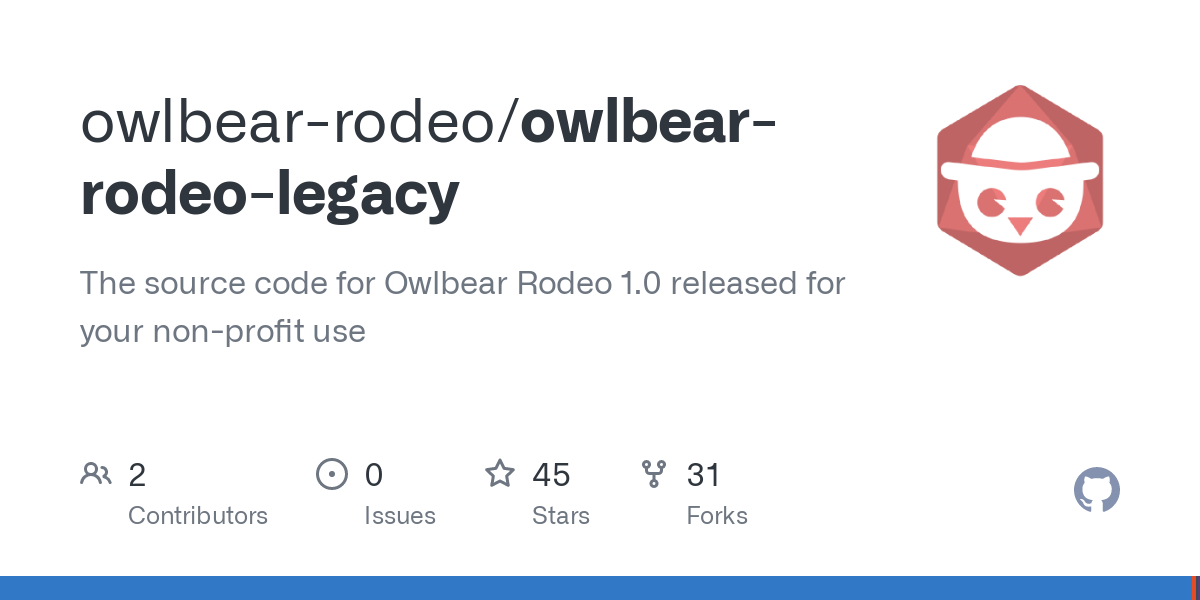With Owlbear Rodeo 2.0 getting officially released the developers haven’t quite made made good on their promises to open source the original Owlbear Rodeo (releasing under a non-commercial license instead of a proper Open Source license what they are now calling “Owlbear Rodeo Legacy”), but the source is available on GitHub, complete with a docker-compose file to spin up your own instance.
Non-commercial is not open source. At best, it’s “source available”.
To be fair to OP, they didn’t say open source until their response to your comment. They just said source code released for non-profit use. You are correct, though, that this is not open source.
Your account is set as a bot account. You probably want to switch that off in your account settings.
Got it! Thanks for pointing it out to me.
Hmm. This client doesn’t seem to have that option.
Eh i dont fully agree but acknowledge there’s space to disagree. It may not be open source in the way that “its GNU-Linux not Linux”; its not copyleft or “Open Source” but it is open source-lowercase o/s. The source code is available, its accessible under a license that allows you to see it and use it in your own projects, with some restrictions — just like the other main open source licenses do, only to a different degree. There is software licensed under Creative Commons noncommercial licenses, eg, even though CC advises against it. The reasoj I’m posting it on this community though is because it’s self hostable more than it’s open sourceness or lack thereof, though.
Open source is an industry term, the code is NOT open, it’s available. I can read it. I cannot use it in anything that might net some profit in the future. “open-source” is defined by the OSI here: https://opensource.org/osd/.




